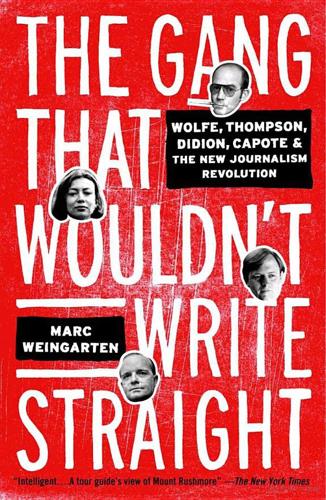
The Gang That Wouldn't Write Straight: Wolfe, Thompson, Didion, Capote, and the New Journalism Revolution
by
Marc Weingarten
Published 12 Dec 2006
What Capote had in mind was a narrative that would burrow deep into the lives of everyone who was touched by the murder—not only the Clutters, but Perry and Hickock, Al Dewey and his team of detectives, the citizens of Holcomb and Garden City. Using John Hersey’s Hiroshima as a model, Capote would re-create the events using the omniscient voice of a novel—or, to use Capote’s memorable phrase, a “nonfiction novel.” “My theory,” said Capote, “is that you can take any subject and make it into a nonfiction novel. By that I don’t mean a historical or documentary novel—those are popular and interesting but impure genres, with neither the persuasiveness of fact nor thepoetic altitude of fiction. Lots of friends I’ve told these ideas to accuse me of failure of imagination.
…
The 135,000-word story ran in four parts in four consecutive issues of The New Yorker beginning with the September 25, 1965, issue; the series was a hit, busting all previous sales records for the magazine. When Random House published it in book form as In Cold Blood, it heralded the arrival of a new form, what Capote called the “nonfiction novel,” and netted its author $2 million in paperback and film sales. Even after the story was published to great fanfare, William Shawn remained uncomfortable with the decision to run it in The New Yorker. For a magazine that prided itself on ironclad accuracy, there was too much unsubstantiated fact, too much fanciful speculation on Capote’s part.
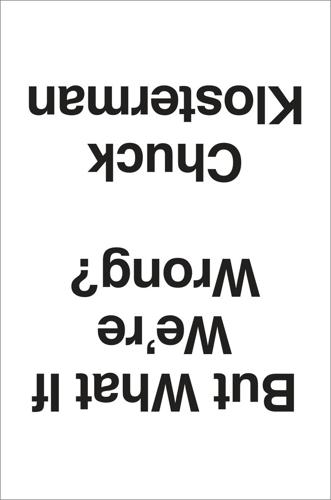
But What if We're Wrong? Thinking About the Present as if It Were the Past
by
Chuck Klosterman
Published 6 Jun 2016
The fox knows a lot, but the hedgehog knows one singular thing that obviously matters more. So what is that singular thing? Well, maybe this: The fox knows all the facts, and the fox can place those facts into a logical context. The fox can see how history and politics intertwine, and he can knit them into a nonfiction novel that makes narrative sense. But the fox can’t see the future, so he assumes it does not exist. The fox is a naïve realist who believes the complicated novel he has constructed is almost complete. Meanwhile, the hedgehog constructs nothing. He just reads over the fox’s shoulder. But he understands something about the manuscript that the fox can’t comprehend—this book will never be finished.
…
One will be more physically attractive. One will be predisposed to work harder and care more. Even in a pure meritocracy, they would experience differing levels of happiness. “It is not the case that we are born equal and that the conditions of life make our lives unequal,” writes Karl Ove Knausgaard in his nonfiction novel My Struggle: Book 2. “It is the opposite, we are born unequal, and the conditions of life make us more equal.” The apparent unfairness of reality can’t be blamed on our inability to embody this “self-evident” principle. The world would be just as unfair if we did. I realize there’s a natural response to the previous statement, and it’s the same response I would have given fifteen years ago: “This is a conscious misreading of the message.
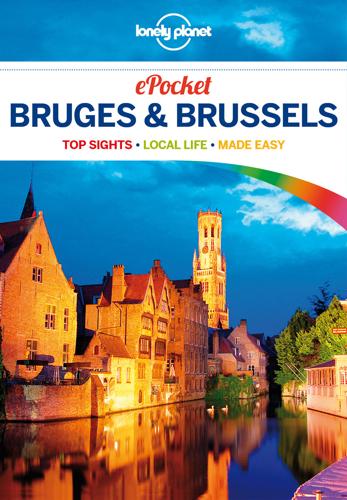
Lonely Planet Pocket Bruges & Brussels
by
Lonely Planet
and
Helena Smith
Published 1 Nov 2012
On weekends, the Vismarkt and nearby Dijver are taken over by antique and bric-a-brac stalls. (Steenhouwersdijk; 8am-1pm Tue-Sat) 33 De Reyghere Reisboekhandel Books Offline map Google map Poring over the huge range of travel guides in English, Dutch and French at this specialised travel bookshop is guaranteed to give you itchy feet. Its adjoining sister store has general nonfiction, novels and English newspapers. ( 050 33 34 03; Markt 12; 9.30am-noon Tue-Sat & 2pm-6pm Mon-Sat) The art of lace-making QONITA ZANIS/GETTY IMAGES © 34 De Biertempel Beer Offline map Google map Specialist beer shop, where you can even pick up a well-priced bottle of Westvleteren. ( 050 34 37 30; Philipstockstraat 7; 10am-6pm) 35 Rombaux Music Offline map Google map Here since 1920, this large and extremely classy family-run music shop specialises in classical music, jazz, world music, folk and Flemish music, and is the kind of place where you can browse for hours.
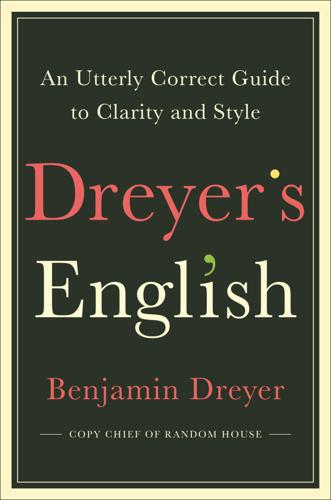
Dreyer's English: An Utterly Correct Guide to Clarity and Style
by
Benjamin Dreyer
Published 15 Jan 2019
fall down What are you going to do, fall up? fellow countryman fetch back To fetch something is not merely to go get it but to go get it and return with it to the starting place. Ask a dog. few in number fiction novel Appalling. A novel is a work of fiction. That’s why it’s called a novel. That said, “nonfiction novel” is not the oxymoron it might at first seem. The term refers to the genre pioneered—though not, as is occasionally averred, invented—by Truman Capote with In Cold Blood, that of the work of nonfiction written novelistically. I once—and, happily, to date, only once—encountered the term “prose novel,” which is as brain-clonking a redundancy as “fiction novel” but which I eventually realized was meant as a retronym:*1 In a world full of graphic novels, the user of the term had apparently decided, one must identify a work of fiction containing a hundred thousand words, give or take, but lacking pictures as a “prose novel.”
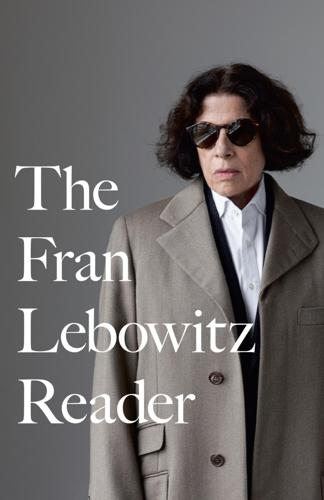
The Fran Lebowitz Reader
by
Fran Lebowitz
Published 8 Nov 1994
Well, the primary difference, of course, is that a notion you can sell but an idea you can’t even give away. There are other differences, to be sure, and as can readily be seen by the following chart, I have taken care not to neglect them. IDEAS NOTIONS MAKING CHANGE ALGEBRA ENGLISH ESPERANTO BLUEBERRY PIE BLUEBERRY VINEGAR POETRY POETS LITERATURE THE NONFICTION NOVEL CHOOSING PICKING BATHROOMS IN MUSEUMS PAINTINGS IN BATHROOMS LIGHT BULBS LIGHT BEER THOMAS JEFFERSON JERRY BROWN BREAKFAST BRUNCH DETROIT SAUSALITO While it may appear to the novice that this just about wraps it up, I am afraid that the novice is sadly mistaken. Ideas are, after all, a subject of some complexity.
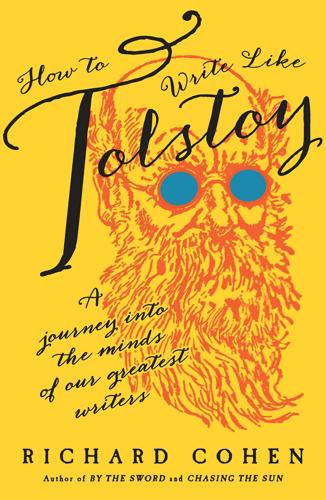
How to Write Like Tolstoy: A Journey Into the Minds of Our Greatest Writers
by
Richard Cohen
Published 16 May 2016
Graham Greene begins The End of the Affair (1951) with almost an apology: “A story has no beginning or end; arbitrarily one chooses that moment of experience from which to look back or from which to look ahead.” An additional burden is the thought of all those weightlifters who have gone before you. Early in his novel The English Patient, Michael Ondaatje argues: “Many books open with an author’s assurance of order. One slipped into their waters with a silent paddle….But [unlike works of nonfiction] novels commenced with hesitation or chaos. Readers were never fully in balance. A door a lock a weir opened and they rushed through, one hand holding a gunnel, the other a hat.” Yet novels can begin slowly—from Oscar Wilde’s The Picture of Dorian Gray in 1890 to Arundhati Roy’s The God of Small Things (1997), we get openings all about the weather.*1 Equally, nonfiction books can start with a bang or a memorable phrase—take the opening page of Isadora Duncan’s autobiography, which contains the sentences “My first memory is of a fire.
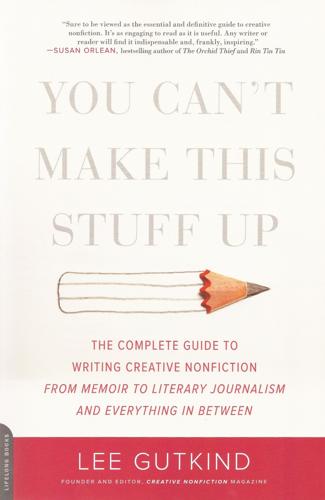
You Can't Make This Stuff Up: The Complete Guide to Writing Creative Nonfiction--From Memoir to Literary Journalism and Everything in Between
by
Lee Gutkind
Published 13 Aug 2012
” - Susanna Kaysen, Girl, Interrupted: memoir of the author’s years of hospitalization for mental illness. 1994 The Association of Writers and Writing Programs (AWP) counts 534 degree-conferring creative writing programs; sixty-four offer a Master of Fine Arts. - John Berendt, Midnight in the Garden of Good and Evil: Edmund White calls this true-crime story “the best nonfiction novel since ‘In Cold Blood’ and a lot more entertaining”; it remains on the New York Times best-seller list for four years; tour buses descend on Savannah. - More memoirs of troubled girlhood: Lucy Grealy, 31, explores “the deep bottomless grief . . . called ugliness,” in Autobiography of a Face; Elizabeth Wurtzel, 26, arrives on the scene with Prozac Nation: Young and Depressed in America
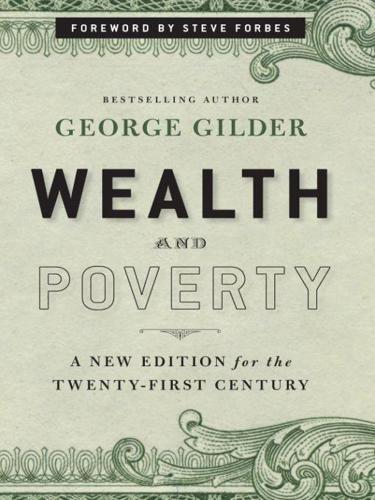
Wealth and Poverty: A New Edition for the Twenty-First Century
by
George Gilder
Published 30 Apr 1981
But one of my major themes is the grave distortions of view that issue from the sociological practice of discussing society chiefly in segments to be studied separately and statistically: the poor, the rich, women, men, business, and labor. This book sprang from an earlier work of mine, Visible Man, an essentially sociological venture that undertook to understand poverty by studying the poor. Visible Man became a nonfiction novel based on interviews with hundreds of poor people in Albany, New York, and Greenville, South Carolina. I learned much from these researches about the devastating impact of the programs of liberalism on the poor. But perhaps the most important lesson I learned was the inadequacy of any theory of poverty that did not embody a theory of wealth.
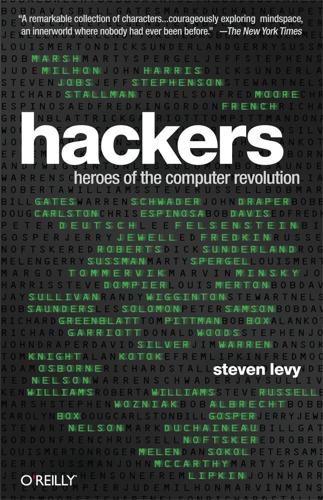
Hackers: Heroes of the Computer Revolution - 25th Anniversary Edition
by
Steven Levy
Published 18 May 2010
(Ken Williams, by the way, has left the business after Sierra was snapped up by a conglomerate. “Both Roberta and I have completely ‘dropped out’ of the game business, or even playing games,” he writes in an email. A sailing enthusiast, he’s written three books on his cruising adventures, and Roberta is working on a nonfiction novel about the Irish immigration.) A new generation of hackers has emerged, techies who don’t see business as an enemy but the means through which their ideas and innovations can find the broadest audience. Take Facebook CEO Mark Zuckerberg, who has drawn four hundred million users to share their personal lives online.
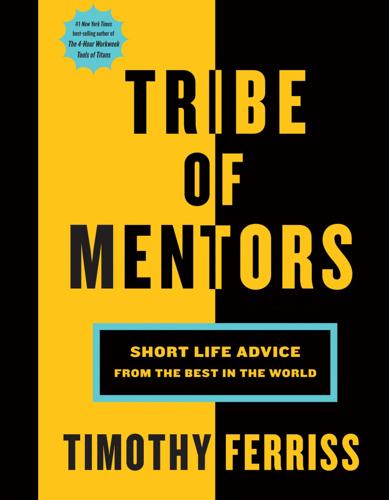
Tribe of Mentors: Short Life Advice From the Best in the World
by
Timothy Ferriss
Published 14 Jun 2017
What fascinates me about these books is how they revolutionized the telling of scientific stories while themselves breaking new scientific ground in the elucidation of the secret of life. Read these two books and you will get a great answer to a question that has baffled mankind for millions of years: What is life? Watson’s “nonfiction novel” was an astonishing literary achievement, and it was about the greatest scientific discovery of the 20th century. Dawkins’ “stranger-than-fiction” argument turned evolutionary biology on its head and was written like a great detective story. What purchase of $100 or less has most positively impacted your life in the last six months (or in recent memory)?
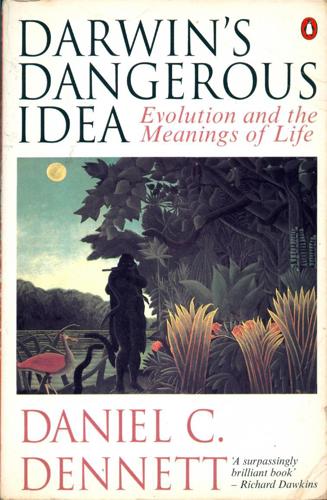
Darwin's Dangerous Idea: Evolution and the Meanings of Life
by
Daniel C. Dennett
Published 15 Jan 1995
Today bookstores face the same sort of ill-formed problem: how should the following categories be cross-organized: bestsellers, science fiction, horror, garden, biography, novels, collections, sports, illustrated books? If horror is a genus of fiction, then true tales of horror present a problem. Must all novels be fiction? Then the bookseller cannot honor Truman Capote's own description of In Cold Blood (1965) as a nonfiction novel, but the book doesn't sit comfortably amid either the biographies or the history books. In what section of the bookstore should the book you are reading be shelved? Obviously there is no one Right Way to categorize books — nominal essences are all we will ever find in this domain. But many naturalists were convinced on general principles that there were real essences to be found among the categories of their Natural System of living things.
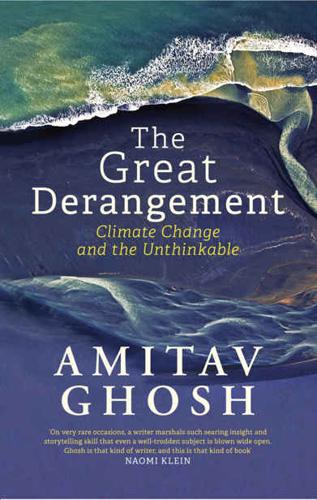
The Great Derangement: Climate Change and the Unthinkable
by
Amitav Ghosh
Published 16 Jan 2018
To see that this is so we need only glance through the pages of a few highly regarded literary journals and book reviews, for example, the London Review of Books, the New York Review of Books, the Los Angeles Review of Books, the Literary Journal and the New York Times Review of Books. When the subject of climate change appears in these publications, it is almost always in relation to non-fiction; novels and short stories are very rarely to be glimpsed within this horizon. Indeed, it could even be said that fiction that deals with climate change is almost by definition not of the kind that is taken seriously by serious literary journals: the mere mention of the subject is often enough to relegate a novel or a short story to the genre of science fiction.
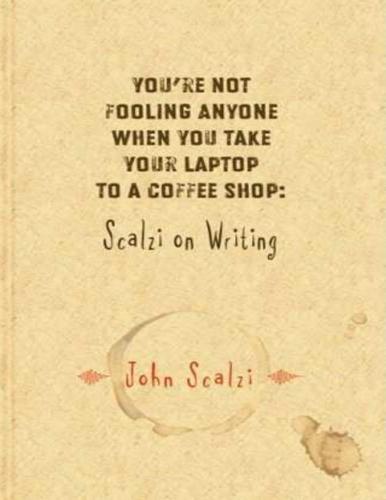
You're Not Fooling Anyone When You Take Your Laptop to a Coffee Shop: Scalzi on Writing
by
John Scalzi
Published 28 Jan 2007
The tolerance for what one wants to be the truth at the expense of genuine truth is why we currently have a government which is of the opinion that truth looks exactly like a urinal. If you're going to write fiction, call it fiction, for Christ's sake. People love romans a clef just as much as actual memoirs; indeed, they feel naughtier because you know the sex scenes are going to be better written. Writing non-fiction novels only works when you are Truman Capote, or intermittently if you're Tom Wolfe. I may be going out on a limb here, not having read him and all, but I'm guessing Mr. Frey is in fact neither of them. CHAPTER FOUR: Science Fiction, or, Don't Skip This Chapter, You Damned Writing Snobs Yes, yes, yes.
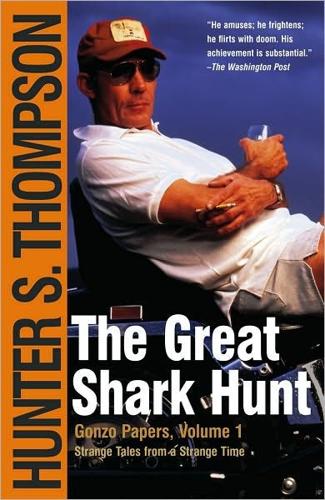
The Great Shark Hunt: Strange Tales From a Strange Time
by
Hunter S. Thompson
Published 6 Nov 2003